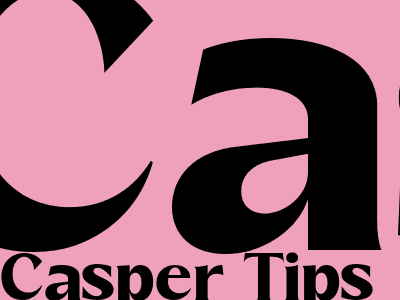Casper Tips: Solving Your Sleep Woes
Overcoming Insomnia with Behavioral Techniques
If you're struggling to fall asleep, you're not alone. Insomnia affects millions of adults, leading to fatigue, irritability, and decreased productivity. Thankfully, there are effective non-pharmaceutical approaches to combat insomnia, like cognitive behavioral therapy (CBT).
CBT focuses on identifying and changing negative thoughts and behaviors that contribute to sleep problems. For insomnia, CBT techniques may include:
- Stimulus control: Establishing a consistent sleep-wake cycle and creating a relaxing bedtime routine.
- Sleep restriction: Gradually reducing the time spent in bed to match actual sleep needs.
- Cognitive restructuring: Challenging negative thoughts and beliefs about sleep.
- Relaxation training: Techniques like deep breathing, meditation, and progressive muscle relaxation to reduce stress and promote relaxation.
Harnessing Light and Darkness for Better Sleep
Light and darkness play a crucial role in regulating our sleep-wake cycle. Optimizing light exposure can significantly improve sleep quality:
- Get plenty of sunlight during the day: Sunlight helps suppress melatonin production, making it easier to stay awake and alert.
- Minimize blue light before bed: Blue light emitted from electronic devices can interfere with melatonin production, making it harder to fall asleep.
- Create a dark and quiet sleep environment: Darkness promotes melatonin production and creates optimal conditions for sleep.
Environmental Factors: Shaping Your Sleep Sanctuary
Your bedroom environment can either promote or hinder restful sleep:
- Maintain a comfortable temperature: The ideal temperature for sleep is around 60-67°F (15.6-19.4°C).
- Optimize humidity levels: Dry air can irritate the nasal passages and throat, making it harder to breathe and sleep.
- Consider a white noise machine or earplugs: White noise can mask distracting sounds, while earplugs can block out noise altogether.
Dietary and Lifestyle Modifications for Better Sleep
Certain dietary choices and lifestyle habits can impact sleep quality:
- Avoid caffeine and alcohol before bed: Caffeine is a stimulant that can interfere with sleep, while alcohol can disrupt sleep patterns.
- Eat a light snack before bed: A small, low-fat snack can help stabilize blood sugar levels and promote relaxation.
- Regular exercise: Regular physical activity can improve sleep quality, but avoid exercising too close to bedtime.


0 Comments